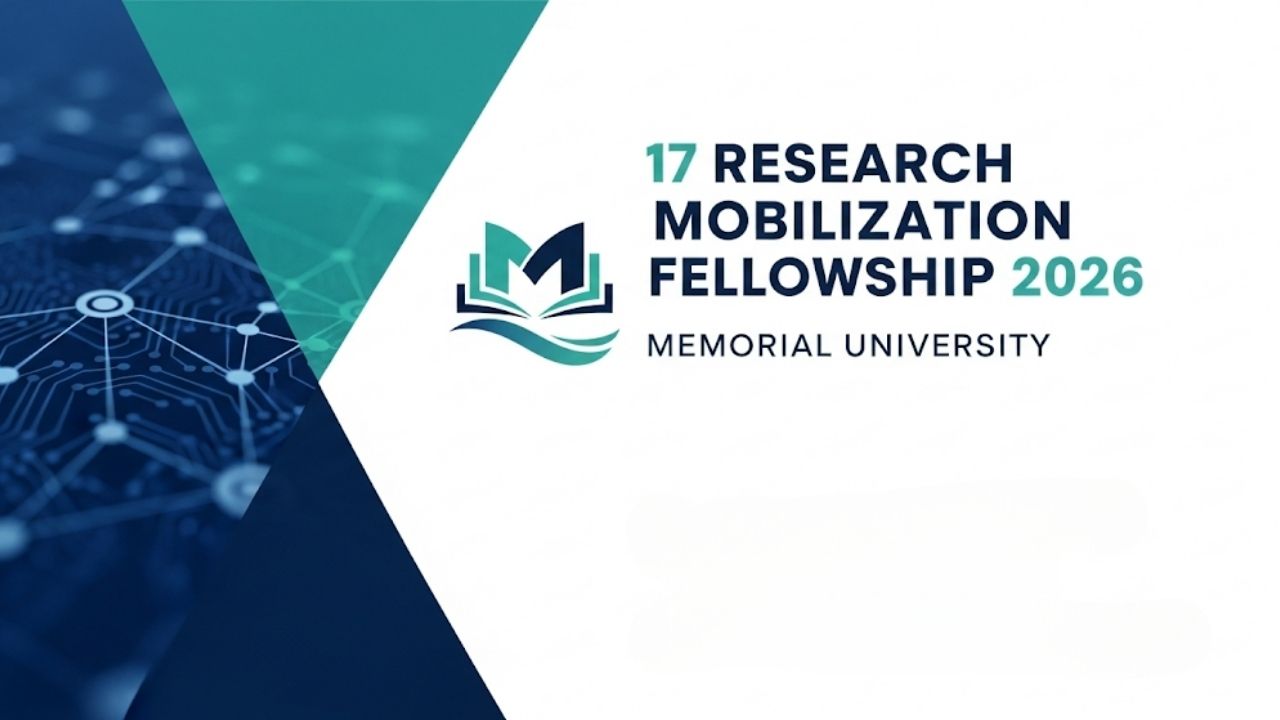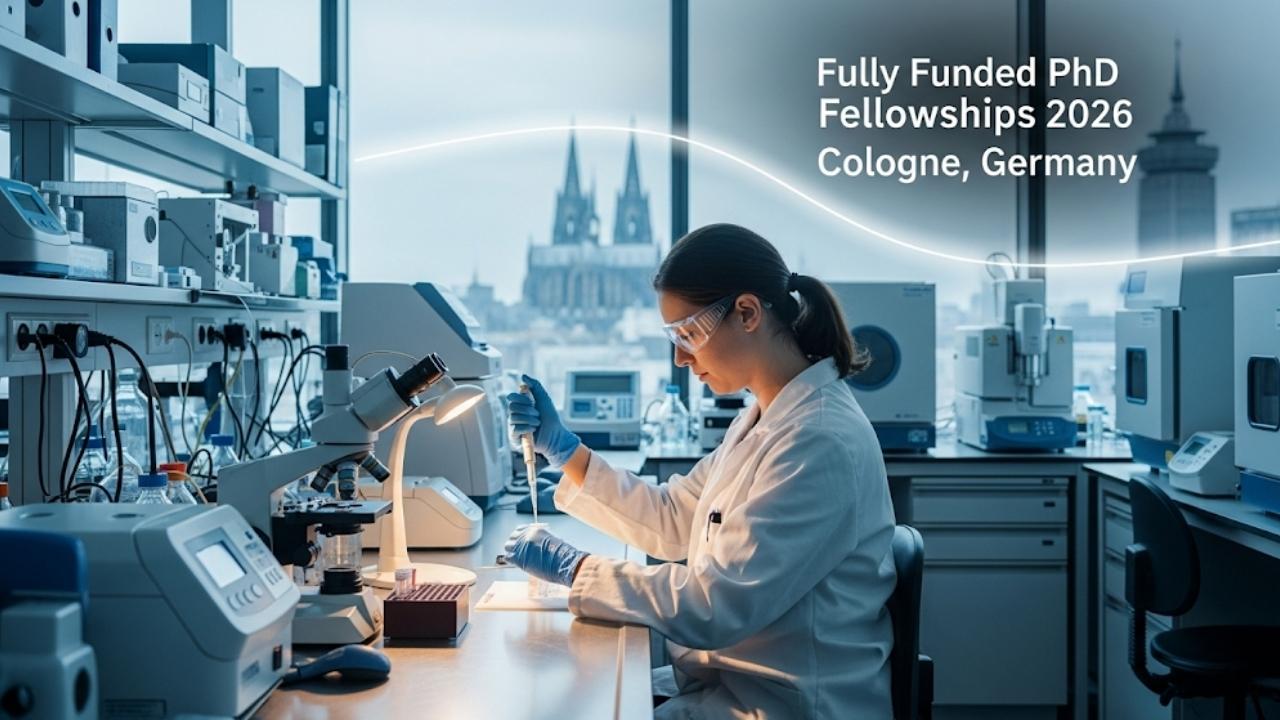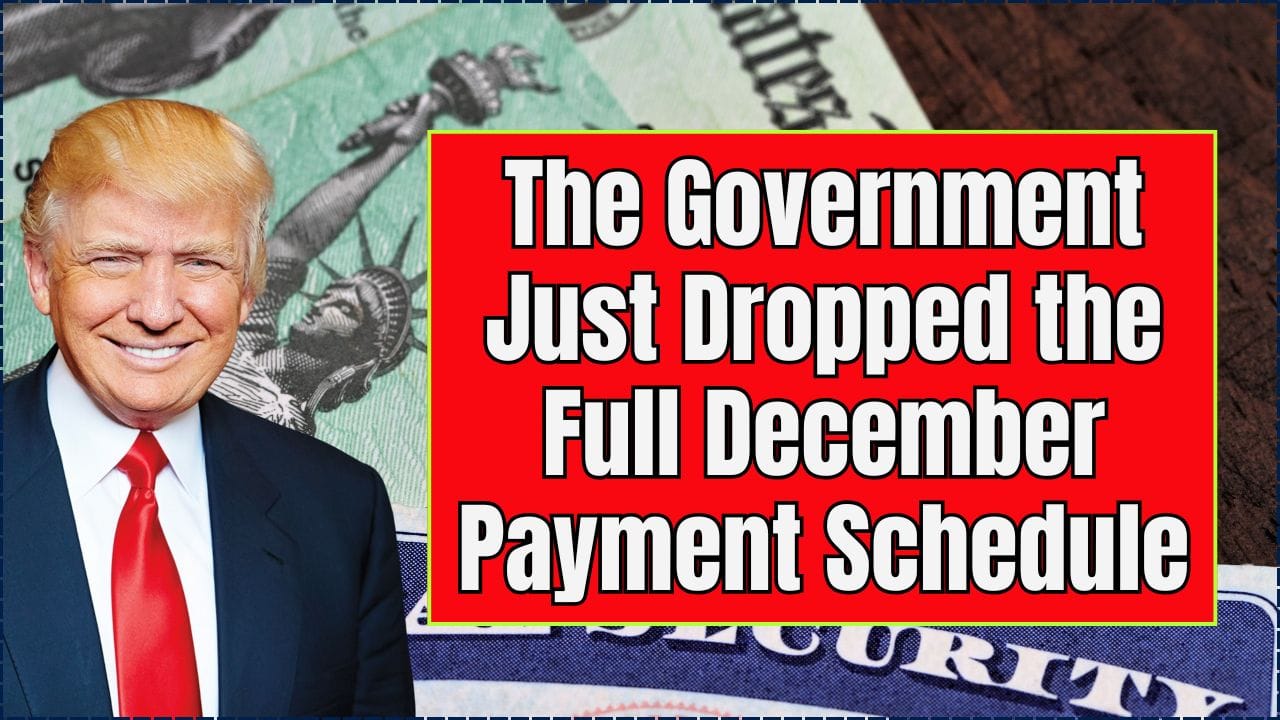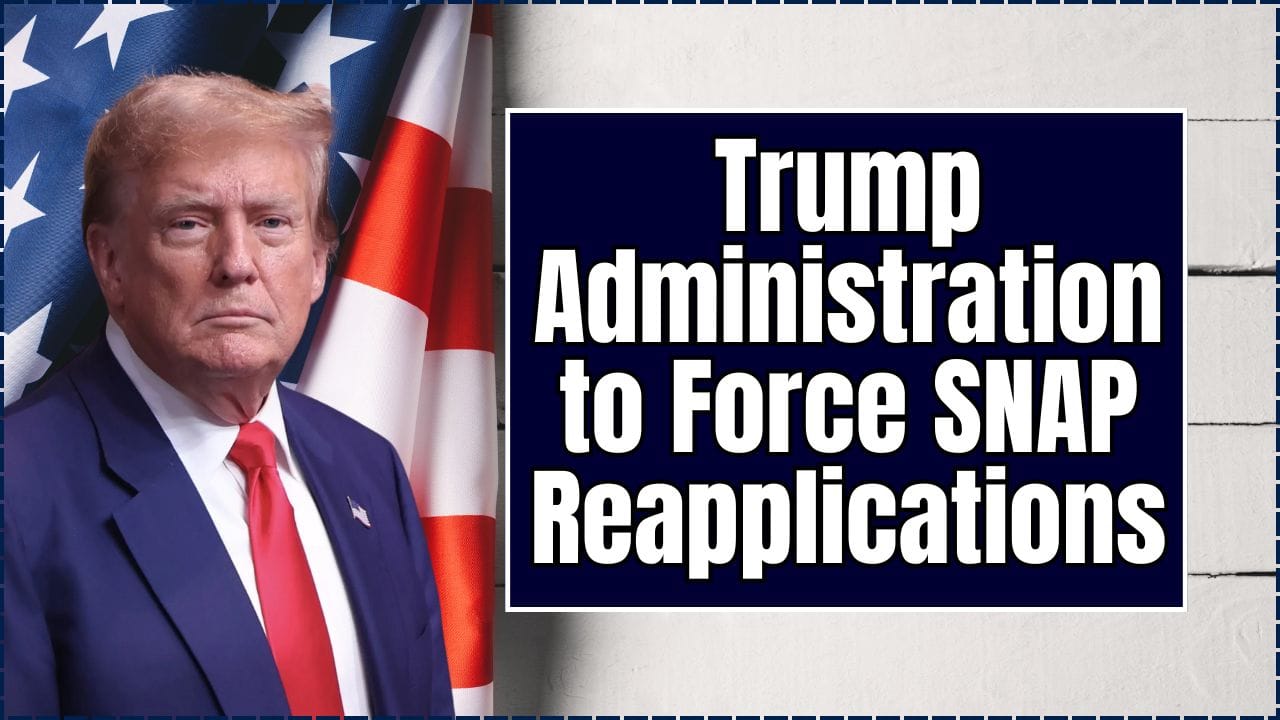Navigating the world of academic fellowships can often feel like searching for a hidden key—a key that unlocks not just funding, but a community and the intellectual freedom to pursue groundbreaking research. The Digital Humanism Fellowship 2025 in Vienna is precisely that key for a new generation of scholars. If you are a doctoral candidate or a recent postdoctoral researcher in the humanities or social sciences, wrestling with the big questions of our digital age, this guide is crafted for you. It’s more than just a set of instructions; it’s a roadmap to help you present your work compellingly and join a vital conversation at the heart of Europe.
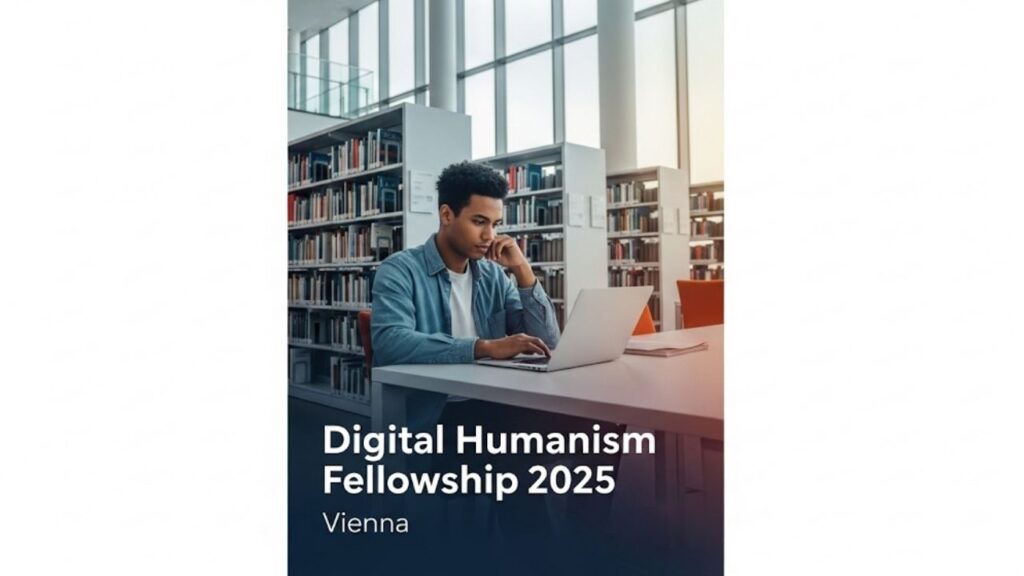
The fellowship, hosted by the prestigious Institute for Human Sciences (IWM), isn’t just about financial support; it’s a three-month, fully-funded opportunity to immerse yourself in your research, surrounded by a vibrant, interdisciplinary community in one of the world’s most intellectually stimulating cities. This article will walk you through what the fellowship offers, who it’s for, and how you can craft an application that truly stands out.
Digital Humanism Fellowship 2025 in Vienna
| Key Fact | Detail | Source |
| Application Deadline | September 21, 2025 | IWM Website |
| Fellowship Location | Vienna, Austria | IWM Website |
| Duration | Three consecutive months in Spring 2026 | IWM Website |
| Monthly Stipend | €3,300 (Postdoctoral) / €2,750 (Doctoral) | DAAD Scholarship Portal |
| Primary Fields | Humanities and Social Sciences | IWM Website |
What is Digital Humanism, and Why Does It Matter?
Before diving into the application, it’s crucial to understand the intellectual soul of the fellowship. Digital Humanism is an approach that seeks to analyze and shape the intricate dance between technology and humanity. It’s about ensuring that as we build a digital future, we do so with human values, societal well-being, and ethical considerations at the forefront.
This fellowship is born from a recognition that the most pressing questions of our time—from AI governance and data privacy to the future of democracy and the digital divide—cannot be answered by technologists alone. They require the critical lens of historians, sociologists, philosophers, and political scientists. The IWM, in partnership with pioneers like Hannes Werthner and the initiators of the Vienna Manifesto on Digital Humanism, has positioned itself as a global hub for this crucial discourse.
By applying, you are not just seeking funding; you are expressing your desire to contribute to a movement that places humanity back at the center of the digital revolution.
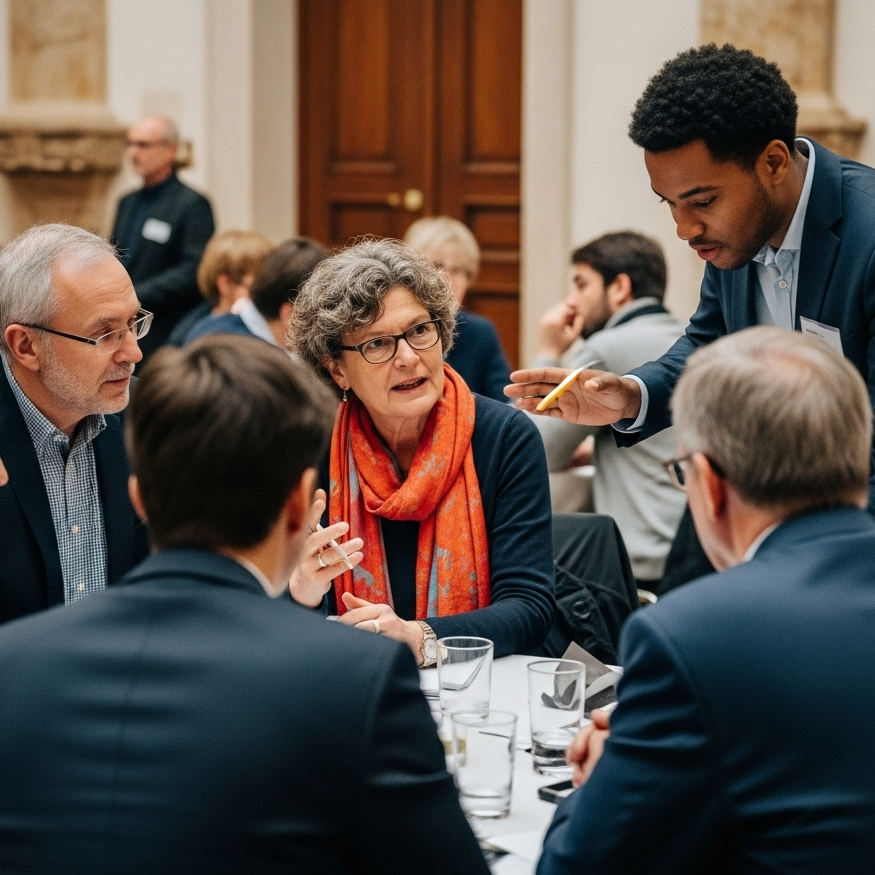
Are You the Right Candidate? Understanding the Eligibility for the Digital Humanism Fellowship
The IWM is searching for emerging intellectual leaders. While the Senior Visiting Fellowships are by invitation only, the Junior Visiting Fellowships are your opportunity to join this exclusive circle. Here’s a breakdown of the eligibility criteria:
- Academic Level: You must either be currently enrolled in a PhD program or have completed your PhD no more than four years ago at the time of application. This makes it an ideal opportunity for advanced doctoral students and early-career researchers.
- Field of Research: Your work must be situated within the humanities or social sciences.
- Research Focus: Your proposed project must explore the intersection of digitalization with societal, cultural, economic, or geopolitical dimensions.
In my experience advising students, the most successful applicants are those who can clearly and passionately articulate how their specific research project connects with the broader mission of Digital Humanism. It’s not enough to have a fascinating topic; you must show why it’s a necessary conversation to have right now.
The IWM provides a list of past fellows and their projects on their website. I strongly encourage you to review them. This will give you a concrete sense of the kind of research that resonates with the selection committee, spanning topics from algorithmic evidence and digital politics to the philosophy of AI and the role of social media in global discourse.
Crafting Your Application: A Digital Humanism Fellowship 2025 in Vienna Guide
An outstanding application is a blend of a brilliant idea and meticulous presentation. The IWM asks for several key documents, all to be submitted in English through their online portal. Let’s break down how to approach each one.
1. The Letter of Motivation
This is your narrative centerpiece. It’s where you connect your personal academic journey to the fellowship’s goals. Your letter should address:
- Why the IWM? Go beyond generic praise. Mention specific scholars, research clusters, or events at the IWM that align with your work. Show that you’ve done your homework.
- How will this fellowship benefit you? Articulate clear, concrete research and writing goals. What do you plan to accomplish during your three months in Vienna? A new chapter? A journal article? A crucial part of your dissertation?
- What is your connection to Digital Humanism? This is the core of the letter. Explain how your project contributes to the IWM’s mission and the broader field of Digital Humanism.
2. The Project Proposal (Max 7,500 characters)
Clarity and conciseness are your allies here. Your proposal must be compelling to a multidisciplinary jury. Structure it logically:
- Objectives: What are the central questions you are asking?
- State of the Art: Briefly situate your work within the current academic debate. What gap are you filling?
- Methods: How will you answer your research questions? What is your methodology?
- Work Plan: Provide a realistic schedule for your three-month stay. This demonstrates that you are well-organized and ready to hit the ground ground running.
I’ve seen many successful applicants use this section to demonstrate the originality of their approach. Don’t just describe your topic; make a persuasive case for why it needs to be studied in the way you propose.
3. Your Curriculum Vitae (CV) and Publications List
Ensure your CV is up-to-date and formatted professionally. It should clearly highlight your academic achievements, conference presentations, and any relevant publications. This document provides the jury with the evidence of your scholarly track record and potential.
4. Letters of Recommendation
Choose your referees wisely. They should be established scholars who know your work intimately and can speak to its quality and significance. Give them ample time—at least a month before the deadline—and provide them with your motivation letter and project proposal. Their letters will be submitted directly by them via a link they receive after you submit your application, so ensure they are aware of the process and the September 21, 2025 deadline.
Life as a Fellow: What to Expect in Vienna
Beyond the generous stipend, the Digital Humanism Fellowship offers an unparalleled intellectual environment. Fellows are provided with:
- A dedicated office space with full administrative and research support.
- Access to the IWM’s extensive library and research facilities.
- Daily in-house lunch, a fantastic opportunity for informal networking with other fellows.
- A travel allowance and comprehensive health insurance.
Living in Vienna itself is a remarkable perk. The city is a hub of culture, history, and intellectual life, offering endless inspiration outside the Institute’s walls.
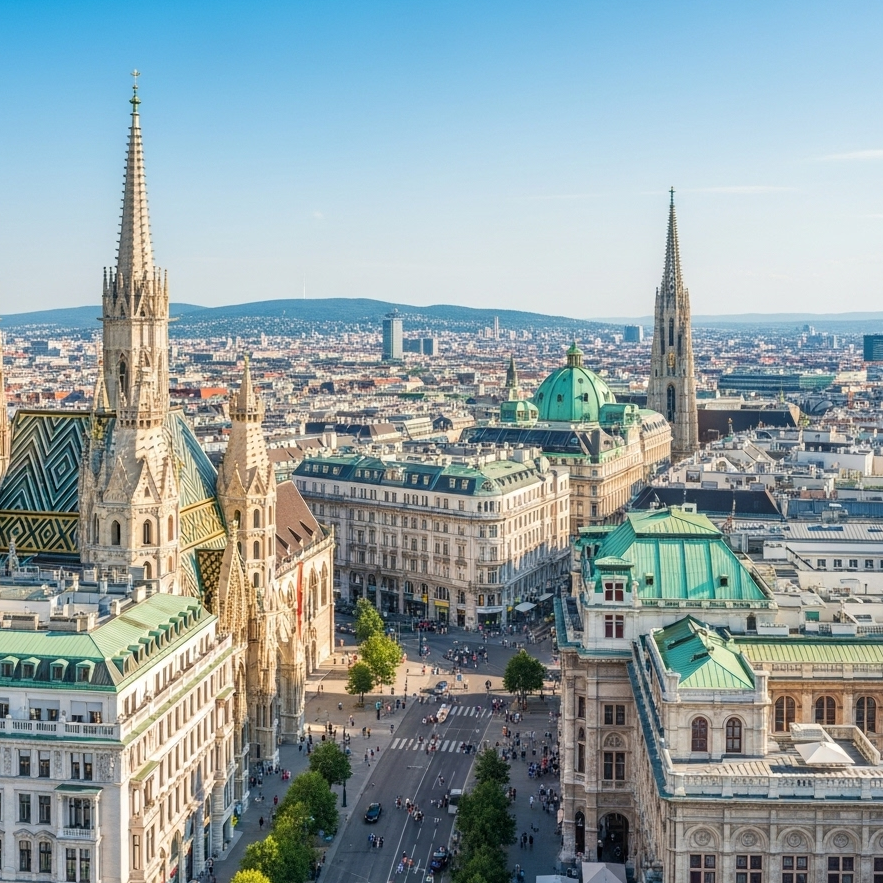
Imagine discussing your research with scholars from around the globe, then stepping out for an evening at the Vienna State Opera or a coffee in a classic Viennese café. This is the holistic experience the IWM cultivates.
Final Thoughts: Your Journey Starts Now
The Digital Humanism Fellowship 2025 in Vienna is more than a line on a CV. It is an invitation to be part of a community dedicated to shaping a more equitable and human-centric digital world. It’s a chance to dedicate three months of your life to deep, focused work in an environment built to foster it.
The application process requires thought, precision, and a clear vision. Begin preparing now. Reflect on your research, refine your proposal, and reach out to your mentors. This is your opportunity to not only advance your career but to contribute your voice to one of the most important conversations of our century. Take the leap—your ideas are needed.
British Council ISPF Early Career Fellowship 2026 at University of Bradford
FAQs
1. Who is eligible to apply for the Junior Visiting Fellowship?
The fellowship is designed for early-career researchers in the humanities and social sciences. To be eligible, you must either be a current PhD candidate or a postdoctoral researcher who completed your PhD no more than four years prior to the application deadline. Your research project must focus on the societal, cultural, economic, or political impacts of digitalization.
2. What does the fellowship stipend cover?
The fellowship provides a generous monthly stipend to cover all living expenses in Vienna. As of the latest information, postdoctoral fellows receive €3,300 per month, and doctoral candidates receive €2,750 per month. In addition to the stipend, the Institute for Human Sciences (IWM) provides fellows with a dedicated office, access to all research and administrative facilities, and complimentary daily lunches.
3. What is the application deadline for the 2025-2026 fellowship?
The application deadline for the Junior Visiting Fellowship for a residency in the spring of 2026 is September 21, 2025. It is crucial to submit all your materials, and for your referees to submit their recommendation letters, by this date.
4. Can I apply if my research isn’t explicitly about technology?
The key requirement is that your project must engage with the broader theme of “Digital Humanism.” This is a wide-ranging field that connects technology to human values and society. Your work does not need to be technical, but you must be able to clearly articulate how your research in history, sociology, philosophy, law, or another social science field addresses the challenges and opportunities of our digital age.
5. Is a knowledge of German required for the fellowship?
No, the working language of the Institute for Human Sciences (IWM) is English. All application materials must be in English, and you can fully participate in the institute’s academic life without speaking German.
6. When will applicants be notified of the decision?
The selection process is conducted by an expert jury. Applicants can expect to be notified of the final decision in November 2025 for fellowships taking place in the spring of 2026.
7. Can I get feedback on my application if it is unsuccessful?
Due to the large number of applications the IWM receives, the jury is unable to provide individual feedback on applications that are not selected.


